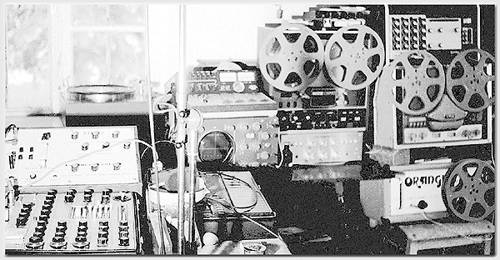
FAQ About The Impact of Independent Music Labels on Artist Development

What is the primary role of independent music labels in artist development?
Independent music labels play a crucial role in artist development by providing personalized attention and resources tailored to the needs of the artist. Unlike major labels, which may focus more on market trends and mass appeal, independent labels often prioritize artistic integrity and creativity. They offer support in areas such as recording, production, marketing, and distribution, while allowing artists more freedom to experiment and develop their unique sound.

How do independent labels differ from major labels in terms of artistic freedom?
Independent labels typically offer greater artistic freedom compared to major labels. This is because independent labels are often more flexible and open to unconventional music styles and artistic experimentation. The smaller scale of operations allows them to take more risks and focus on niche markets, thus enabling artists to express their creativity without the pressure to conform to mainstream commercial expectations.

What advantages do independent labels offer to new artists?
Independent labels offer several advantages to new artists, such as personalized support, greater artistic freedom, and a closer working relationship with the label's team. They often invest time in nurturing an artist's talent without the immediate pressure to deliver commercial success. This environment can help artists to develop their skills and refine their sound, which might not be possible within the more commercially driven framework of major labels.

How do independent music labels contribute to the global music scene?
Independent music labels contribute significantly to the global music scene by diversifying the range of music available to audiences. They enable the discovery of new genres, sounds, and artists that might otherwise be overlooked by major labels. This diversity fosters a rich cultural exchange and innovation within the music industry, offering listeners access to a wider array of musical experiences globally.

Can independent music labels help artists achieve commercial success?
Yes, independent music labels can help artists achieve commercial success. While they may not have the same financial resources as major labels, independent labels often employ innovative marketing strategies and build strong organic fan bases. Many artists have gained significant visibility and commercial success while maintaining their independence, demonstrating that commercial success is achievable outside traditional major label routes.

Do independent music labels have a significant impact on artistic trends?
Independent music labels often have a significant impact on artistic trends due to their willingness to support innovative and unconventional music. By nurturing unique and diverse artists, they can influence broader music trends and inspire new movements within the industry. Independent labels are often at the forefront of genre evolution and cultural shifts in music.

What challenges do independent music labels face?
Independent music labels face challenges such as limited financial resources, competition with major labels, and the need to build strong distribution networks. They often have to balance financial sustainability with artistic integrity. However, they can overcome these obstacles by fostering close relationships with artists and fans, leveraging digital platforms for marketing and distribution, and capitalizing on niche markets.

How do independent labels support diversity in music?
Independent labels support diversity in music by championing artists from a range of backgrounds and music genres. They often give a platform to voices and music styles that are underrepresented in the mainstream music industry. This commitment to diversity not only enriches the musical landscape but also provides opportunities for artists who reflect a wide spectrum of cultures and experiences.

What kind of artists typically sign with independent music labels?
Artists who typically sign with independent music labels are often those who seek more control over their artistic output, have niche or experimental music styles, or value close, collaborative relationships with their label. These artists tend to prioritize artistic integrity over commercial pressures and are often looking for partners who are equally passionate about innovation and creativity in music.

How do independent music labels nurture emerging talent?
Independent music labels nurture emerging talent by providing personalized development plans, mentoring opportunities, and access to experienced industry professionals. They often invest in artist education regarding music production, marketing, and performance, fostering a growth environment that emphasizes artistic experimentation and personal development.

What is a common misconception about independent music labels?
A common misconception about independent music labels is that they lack the capability to deliver commercial success. While they may not have the vast resources of major labels, they often excel in creativity, niche marketing, and building dedicated fan communities, which can lead to significant commercial achievements for their artists.

How do independent labels balance financial constraints with artistic goals?
Independent labels often balance financial constraints with artistic goals by operating with lean structures, focusing on quality over quantity, and building sustainable business models. They may use innovative marketing techniques and digital distribution to reach audiences more cost-effectively, ensuring that financial limitations do not hinder artistic ambitions.

Are independent music labels more supportive of genre innovation?
Yes, independent music labels are generally more supportive of genre innovation as they are less constrained by commercial pressures and more open to exploring new and experimental music styles. This openness allows independent labels to pioneer new genres and support artists who push the boundaries of conventional music.

What is the historical impact of independent music labels on the music industry?
The historical impact of independent music labels on the music industry is notable in their role in introducing and popularizing various music genres such as punk, grunge, and hip-hop. These labels have often been catalysts for cultural shifts within the music scene, providing a platform for groundbreaking artists and musical movements that reshape industry standards.

Do artists who start with independent labels often move to major labels?
Artists who start with independent labels sometimes move to major labels after establishing themselves in the industry. This transition can offer wider distribution opportunities and larger marketing budgets. However, many artists choose to remain independent to retain creative control and maintain the close relationship with their label that often defines their early career.

What influence do independent labels have on music streaming platforms?
Independent labels influence music streaming platforms by contributing to the diversity of available music and often driving trends in emerging genres. Streaming platforms rely on the broad catalog and unique offerings from independent labels to attract niche listeners and remain competitive in providing diverse music options.

How do independent labels utilize digital tools for artist development?
Independent labels utilize digital tools for artist development by leveraging social media, music streaming services, and online marketing to reach and engage with audiences. These tools allow them to implement cost-effective methods for promoting their artists, conducting market research, and building global fanbases without the need for extensive financial resources.

Are independent music labels beneficial for long-term artist career growth?
Yes, independent music labels can be beneficial for long-term artist career growth because they often focus on sustainable artist development over quick financial success. By investing in the personal and professional growth of their artists, independent labels can help them build solid foundations for lasting careers in the music industry.

How do independent labels impact cultural representation in music?
Independent labels impact cultural representation in music by promoting artists from various cultural backgrounds who offer diverse perspectives and sounds. This promotion enhances the visibility and voice of underrepresented communities in the music industry, fostering a more inclusive cultural landscape.

What role do independent labels play in local music scenes?
Independent labels play a significant role in local music scenes by nurturing local talent, organizing events, and building community networks. They often act as cultural hubs that support local musicians and enable the growth of unique, region-specific sounds that can influence broader musical trends.
